Are you looking to obtain immunization records for yourself or your child? Whether it's for school enrollment, travel, or just keeping your health information in order, knowing how to request these records can save you time and effort. In this article, we'll guide you through a simple letter template tailored for requesting immunization records, ensuring you have all the necessary details covered. So, let's dive in and make the process hassle-free!
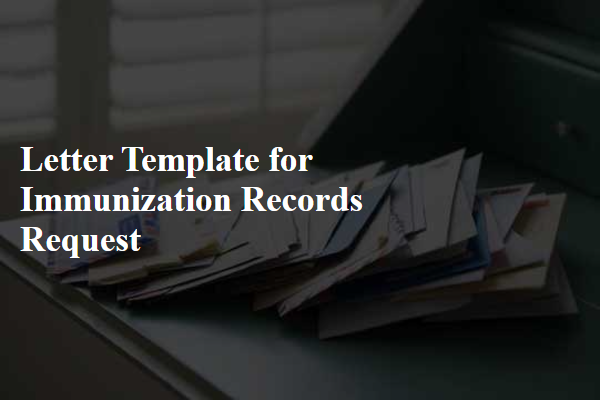
Patient's Full Name and Date of Birth
Immunization records serve as essential documentation for individuals, including children and adults, confirming vaccinations received to protect against various diseases. The patient's full name, a critical identifier in medical records, ensures accurate retrieval of information within healthcare databases. The date of birth, another vital piece of information, assists in verifying the age-specific vaccination schedule compliance as recommended by organizations like the Centers for Disease Control and Prevention (CDC). Accurate records are crucial in settings such as schools, workplaces, and travel, where proof of immunization may be required.
Specific Immunization Records Needed
Immunization records are critical for maintaining public health and compliance with school and employment requirements. Specific records required include immunizations against diseases such as measles, mumps, and rubella (MMR vaccine) administered typically in childhood, along with tetanus-diphtheria-pertussis (Tdap) booster shots usually given around age 11. For travel purposes, documentation of the hepatitis B vaccine series completed generally within the first year of life is necessary. Additionally, proof of the varicella (chickenpox) vaccination is often required for children entering school. Access to precise vaccination dates, healthcare provider information, and any previous medical exemptions can facilitate the accurate and timely retrieval of these essential documents.
Preferred Method of Receiving Records
Immunization records provide crucial information on vaccination history, typically tracked by healthcare providers. Commonly requested immunization records include vaccines such as MMR (Measles, Mumps, Rubella) and DTaP (Diphtheria, Tetanus, Pertussis), which are vital for school admissions and travel. Preferred methods of receiving these records usually encompass options such as electronic delivery via email or online patient portals, physical copies mailed to home addresses, or secure fax transmissions to healthcare providers. The efficiency of receiving these documents can significantly impact timely school enrollment, medical check-ups, or compliance with travel regulations.
Contact Information (Address, Phone, Email)
Immunization records play an essential role in maintaining individual health history and compliance with public health guidelines. These records often include important details such as the types of vaccines administered, specific dates of each vaccination, and the healthcare provider responsible for the immunization. Establishments like schools, daycare centers, and certain employers frequently require proof of immunization to ensure a safe environment. Additionally, tracking immunization records becomes crucial in response to outbreaks of diseases, helping to monitor vaccination rates in communities. Proper documentation aids in planning for future vaccinations and understanding vaccination schedules recommended by health authorities like the Centers for Disease Control and Prevention (CDC).
Authorization and Signature
To obtain immunization records, individuals must typically provide specific authorizations and signatures as per regulations. Authorization forms usually include personal details such as full name, date of birth, and contact information, ensuring accurate identification. Signatures act as consent to access sensitive health information, including vaccinations received, dates of doses, and healthcare provider details. Compliance with established protocols, such as those outlined by the Health Insurance Portability and Accountability Act (HIPAA) in the United States, is mandatory to protect patient privacy. Additionally, the request may indicate the specific use of the records, whether for school enrollment, employment, or travel requirements.
Letter Template For Immunization Records Request Samples
Letter template of immunization records request for employment verification.
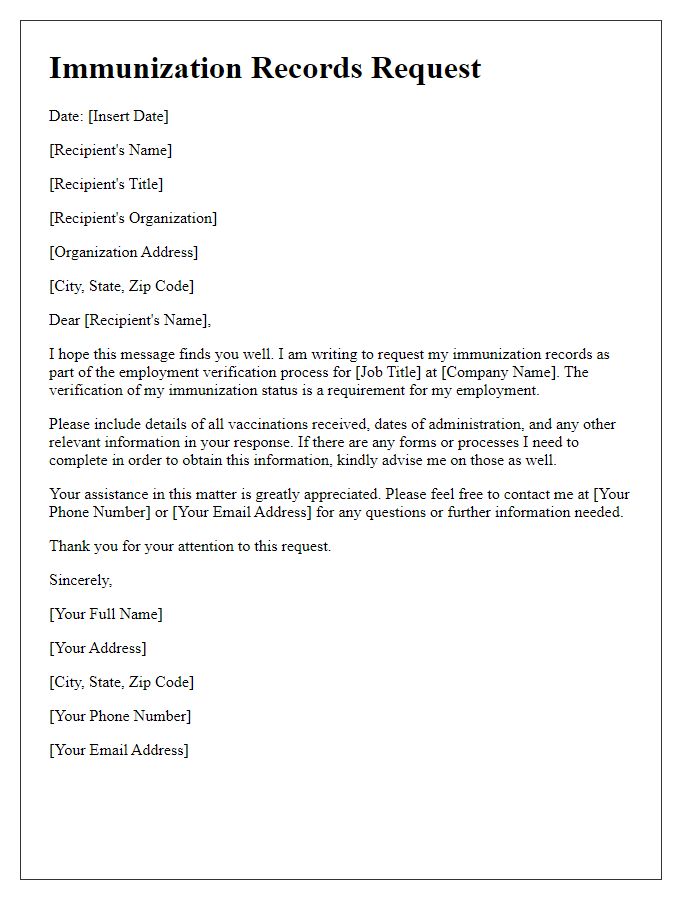
Letter template of immunization records request for travel documentation.
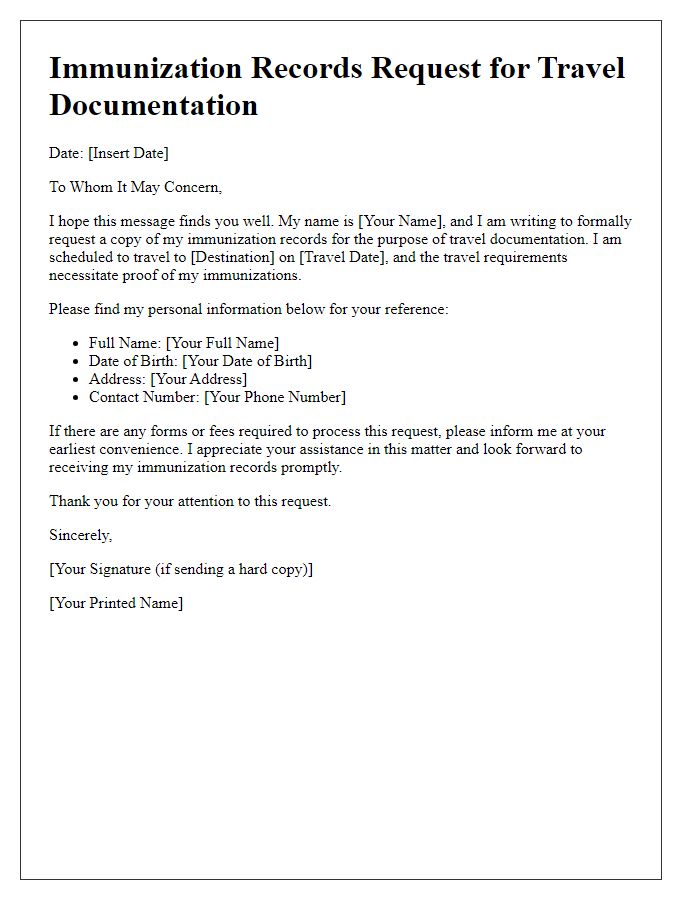
Letter template of immunization records request for healthcare provider.
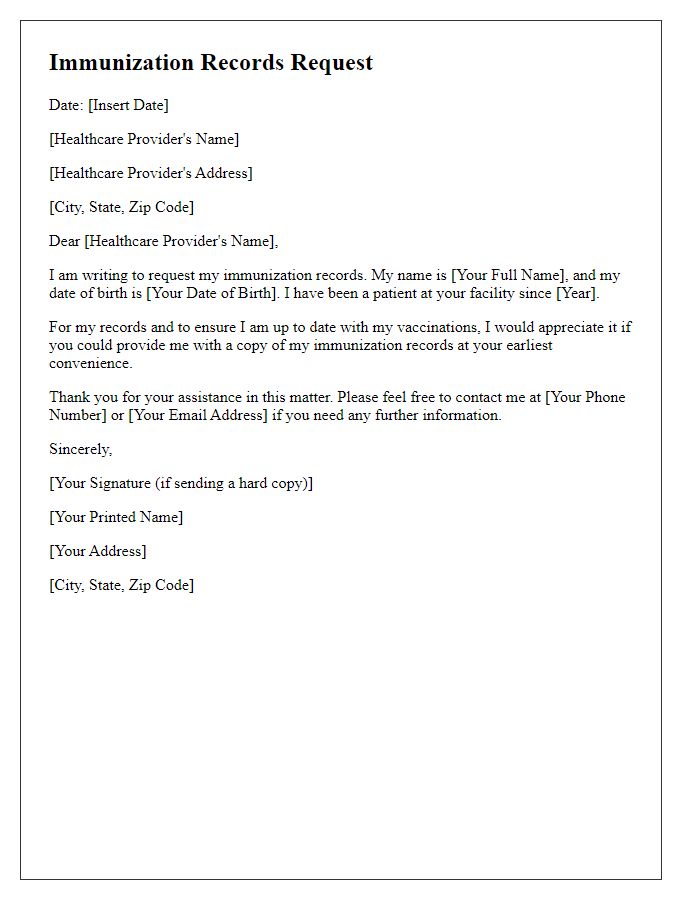
Letter template of immunization records request for college applications.
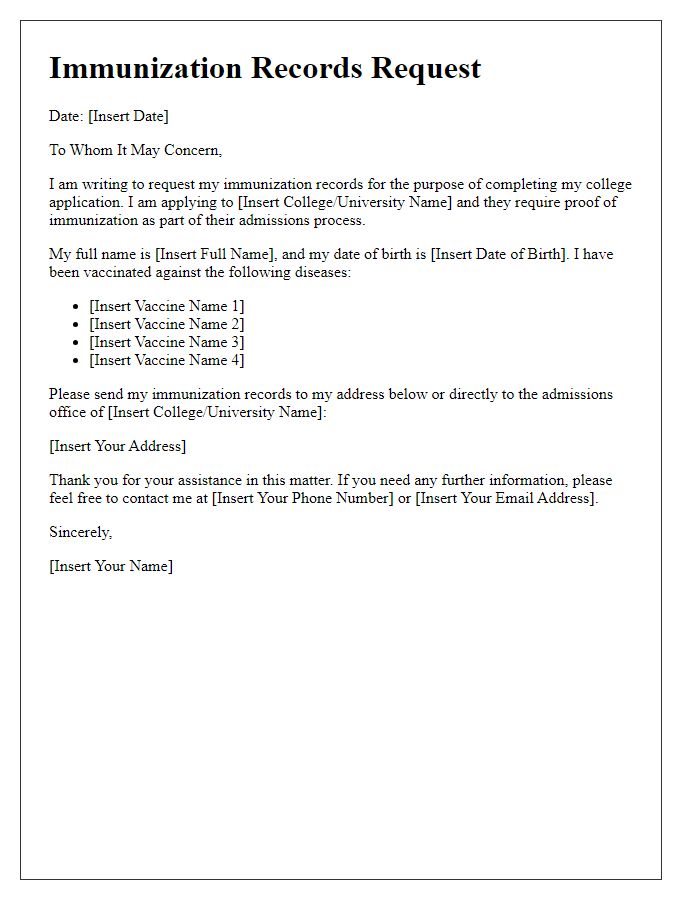
Letter template of immunization records request for residency requirements.
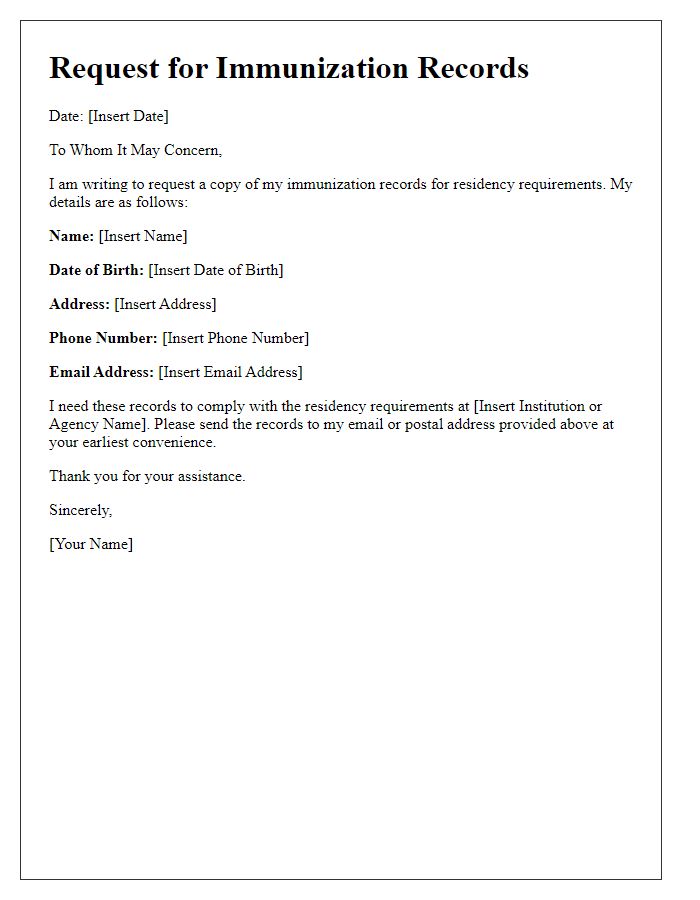
Letter template of immunization records request for personal health records.
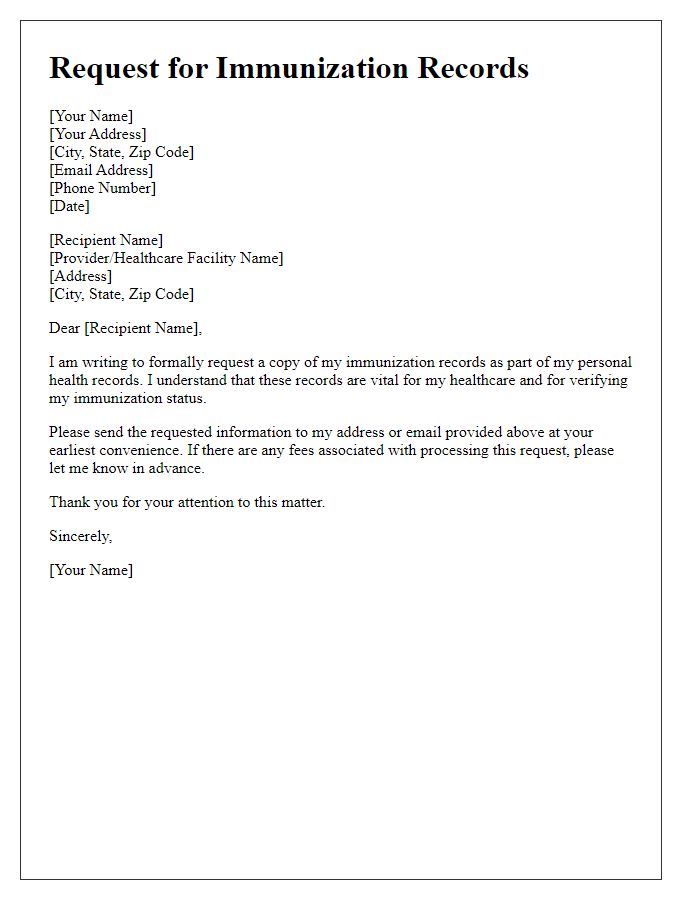

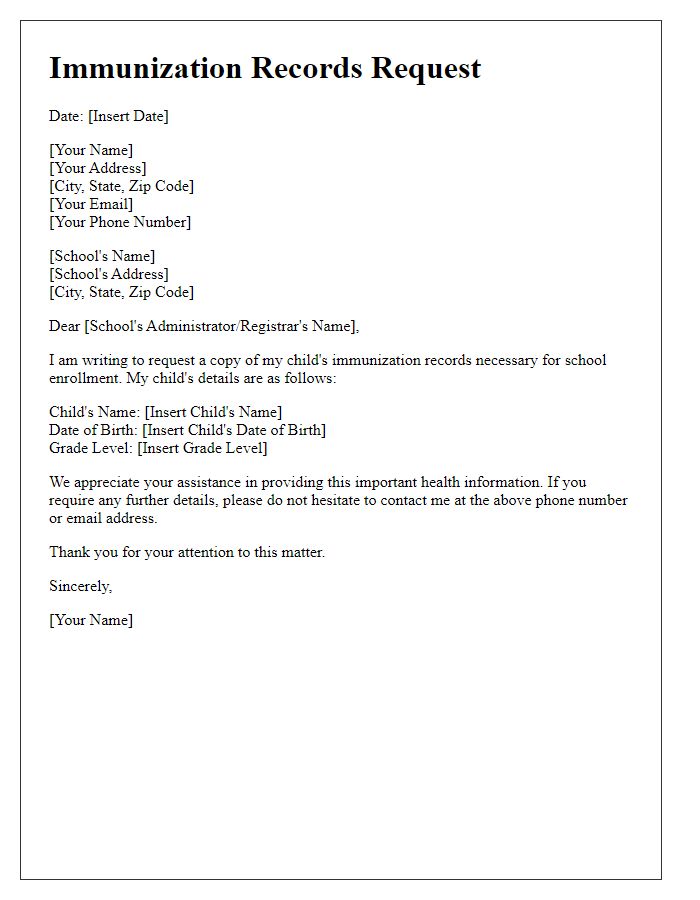
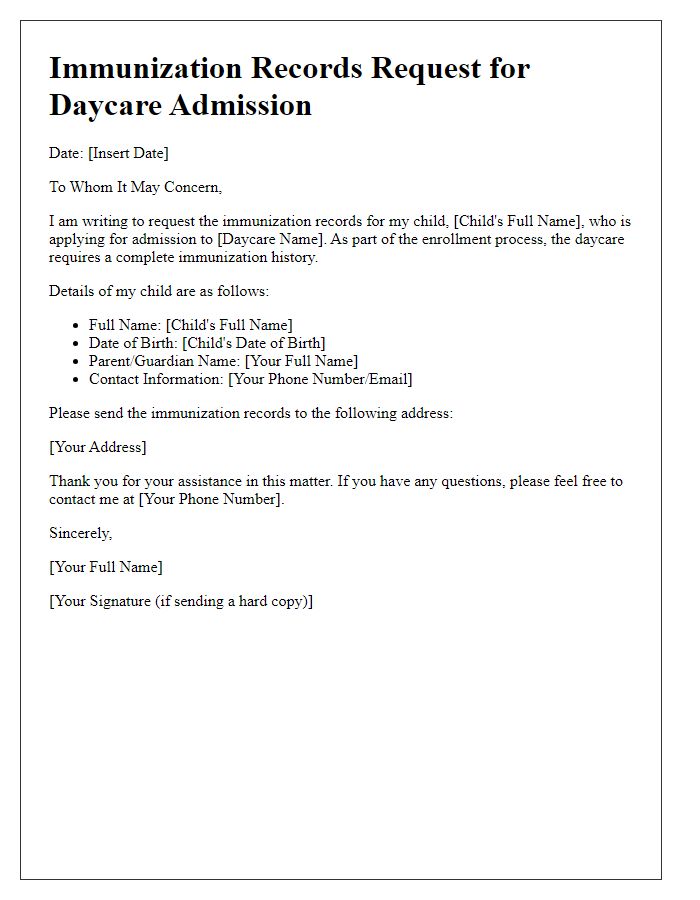
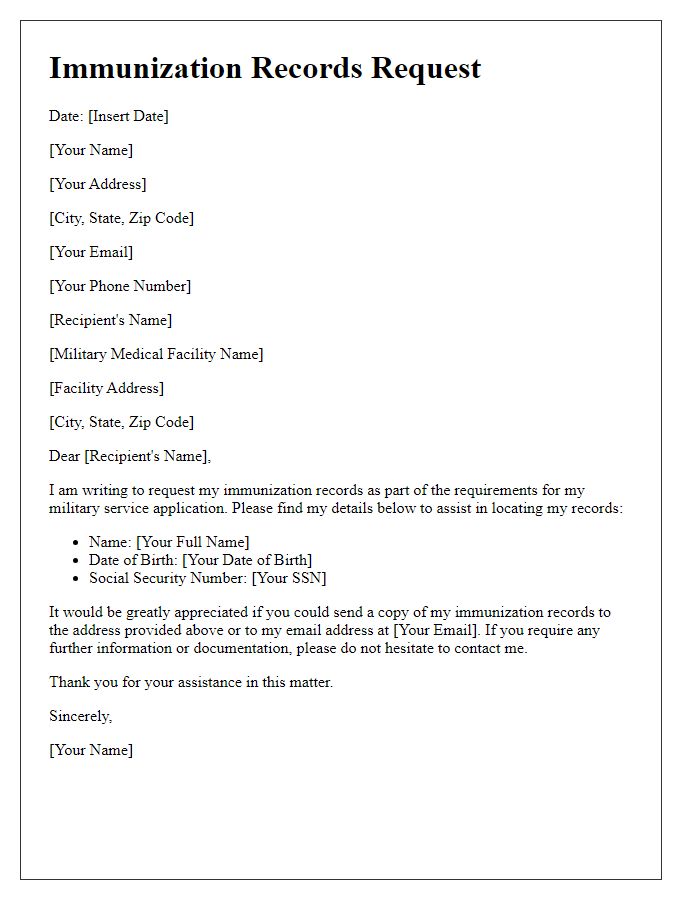
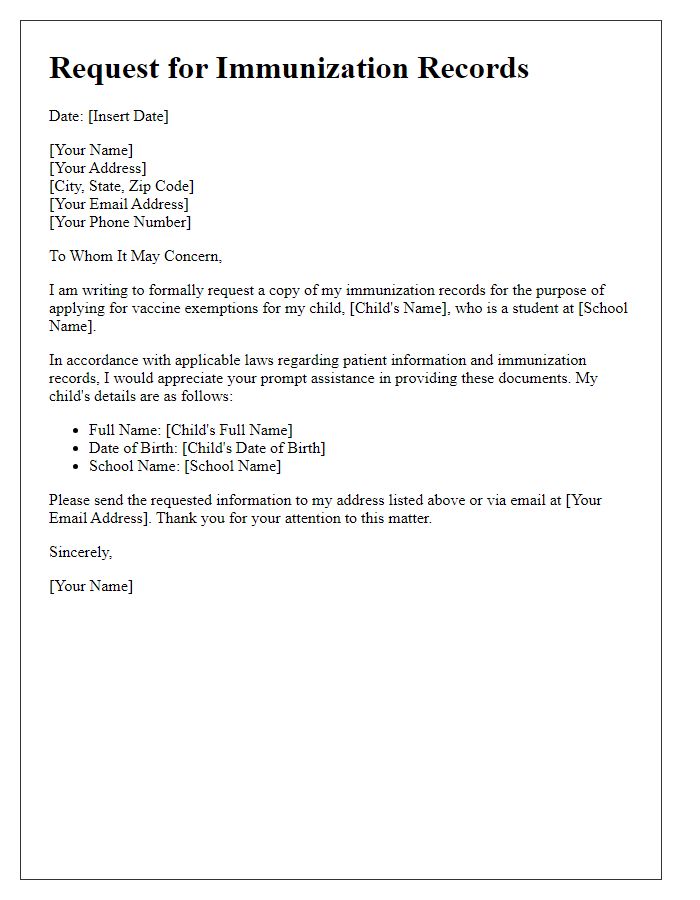


Comments